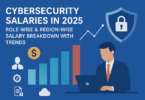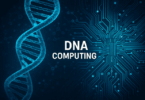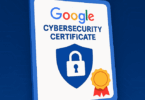As technology advances rapidly, staying updated with the latest trends is essential for both personal and professional growth. Understanding upcoming innovations can empower you to adapt and thrive in a constantly changing digital landscape. This guide will explore significant technological advancements anticipated in 2025, providing insights into their potential impacts.
The rapid evolution of technology over the past few decades has fundamentally changed how people live, work and communicate. As the world approaches 2025, keeping abreast of new technological developments becomes increasingly important. These innovations not only promise to enhance efficiency and convenience but also bring about challenges that require thoughtful consideration and adaptation. By exploring these trends, you can better prepare for the future and harness the opportunities they present, such as those offered by an SEO Agency Surrey to improve digital strategies.
Artificial Intelligence (AI) and Machine Learning
The advancements in artificial intelligence (AI) have been transformative, with applications spanning numerous industries such as healthcare, finance and entertainment. AI is now being integrated into systems to enhance customer experiences by providing personalized recommendations and services. In particular, machine learning is revolutionizing data analysis by enabling computers to learn from vast datasets, leading to improved decision-making processes that are faster and more accurate. AI could potentially deliver significant economic output by 2030. To capitalize on these opportunities, organizations must focus on developing robust AI strategies that align with their goals.
Moreover, the integration of AI into business operations can significantly optimize resource allocation and streamline processes. This is particularly relevant as businesses strive to improve their online presence through data-driven insights. Data-driven insights, even those not powered necessarily by AI, allow for you to make the most out of your business. You can always look to SEO Surrey, a pioneer in this world, to see how to use SEO data to your benefit. Machine learning algorithms assist in identifying patterns and trends within consumer behavior, allowing companies to tailor their marketing strategies effectively. Consequently, understanding AI’s applications can provide you with a competitive edge in today’s digital economy.
The emergence of generative AI models has further expanded the potential applications of artificial intelligence. These sophisticated systems can now create original content, from writing and artwork to code and music, opening new possibilities for creative industries. This advancement has also led to the development of more intuitive human-computer interactions, where AI can better understand context and nuance in natural language processing. As these technologies continue to mature, people are seeing increased adoption in areas such as automated customer service, predictive maintenance and personalized education systems.
Blockchain Technology
While blockchain is often associated with cryptocurrencies like Bitcoin, its potential extends far beyond digital currencies. This decentralized ledger technology offers a secure and transparent method for recording transactions across various sectors. For instance, blockchain’s application in supply chain management enhances traceability and accountability by ensuring that every step of a product’s journey is documented and verified. Additionally, in finance, blockchain can streamline processes such as cross-border payments and reduce fraud risks.
Blockchain’s capability in digital identity verification could transform how personal data is managed and protected online. By providing individuals with greater control over their information, blockchain-based solutions offer enhanced privacy while reducing the risk of identity theft. As this technology continues to evolve, understanding its implications becomes crucial for businesses seeking innovative ways to secure their operations.
Internet of Things (IoT)
The Internet of Things (IoT) represents a network of interconnected devices that communicate with each other over the Internet. This connectivity facilitates smarter homes and cities by enabling automated control over various systems such as lighting, heating and security. As IoT technologies advance, they hold the promise of transforming urban infrastructure by improving energy efficiency and reducing waste.
In the context of daily life, IoT devices offer convenience through features like voice-activated assistants and smart appliances that learn from user preferences. The number of IoT devices worldwide is expected to grow significantly by 2025, highlighting the growing influence of this trend on consumer habits. Embracing IoT solutions can lead to improved quality of life while fostering sustainable practices through efficient resource utilization.
Augmented Reality (AR) and Virtual Reality (VR)
Augmented reality (AR) and virtual reality (VR) are two immersive technologies reshaping industries such as gaming, education and retail. AR overlays digital content in the real world, enhancing user experiences with interactive elements that provide additional information or entertainment value. On the other hand, VR creates entirely simulated environments that users can explore using specialized headsets.
The potential applications for AR and VR are vast, from training simulations in healthcare settings to virtual tours for real estate properties. These technologies could contribute significantly to global productivity levels by 2030. As AR and VR continue to evolve beyond entertainment purposes alone – offering practical solutions for complex challenges – understanding their capabilities will be essential for those looking toward future innovation opportunities.
Well, there you have it, everything you need to know about this industry and how to use it to your benefit.







